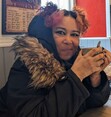Sumiko Saulson's Blog, page 27
February 10, 2017
Day 5: Zin E. Rocklyn
This is one of my fellow authors from the Forever Vacancy anthology.
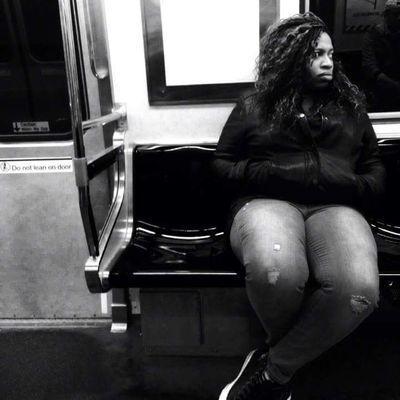
Zin E. Rocklyn hails from Jersey City, New Jersey and is of Trinidadian descent. As such, she says she’s always been surrounded by the spine-tingling tales of ghost children, devilishly handsome men, and mysterious, lost spirits, all looking for your soul when you’re a little too careless.
Her immersion in these tales have made her stories older and deeper than her years, much like the name she’s chosen to pen them under. Zin passes the time daydreaming, reading, and thinking up new ways to creep her most loved ones out.
Her short story “Need” is in the Colors in Darkness anthology Forever Vacancy, and is a visceral tale of an ageless being who gives two mysterious men checking in to the Kretcher motel more than they bargained for when they attempt to possess her.
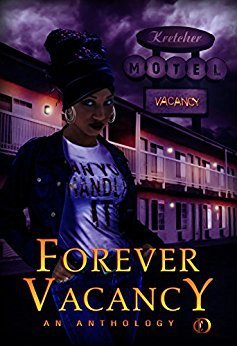
Her short story “Summer Skin” is in the upcoming Sycorax’s Daughters, an anthology of…
View original post 34 more words


Maria Nieto releases sequel to ‘The Pig Behind the Bear’
Maria Nieto’s latest novel, “The Water of Life Remains in the Dead” ranked #5 on The Latino Author’s Top 10 for 2015. “The title comes from forensic evidence that was used to determine where some o…
Source: Maria Nieto releases sequel to ‘The Pig Behind the Bear’


February 9, 2017
Interview with Valjeanne Jeffers, Author of Immortal IV: Collision of Worlds
This is a part of our Black Women in Horror Interview Series. February is African American History Month here in the United States. It is also Women in Horror Month (WiHM). The Black Women in Hor…
Source: Interview with Valjeanne Jeffers, Author of Immortal IV: Collision of Worlds


Women’s Horror Month in Second Life
Women in Horror Month (WiHM) is an international, grassroots initiative, which encourages supporters to learn about and showcase the underrepresented work of women in the horror industries. Whether they are on the screen, behind the scenes, or contributing in their other various artistic ways, it is clear that women love, appreciate, and contribute to the horror genre.
Join us for a SecondLife Treasure Hunt through Sumiko Saulson’s Reading Room, Castle Nemesis, The Asylum, Unknowable Objects (Rat Run), and the Buffalo Reading Room and other locations to find freebies like excerpts and items from their books. This event is sponsored by Unknowable Objects (Hekate Galatea), w00t w@t3ver (Masiko Preis), Iconoclast Productions, 4Flavaz, Stagefright, The Asylum, Castle Nemesis (Nemesis Navaranthna), and horror authors Sumiko Saulson and Suzi Madron. If you would like an inworld interview with one of these two lady horror writers, message us inWorld: Miki Bizet (Sumiko Saulson), Suzi M (Xirconnia Morphett)




[image error]



Interviews when Requested:
Send either of these two authors a message to sit and chat in SecondLife! Suzi M or Sumiko Saulson. Also contact us on Facebook to arrange a SecondLife chat about women in horror and/or a tour of our digs there.
Locations for the Treasure Hunt (sURLs):
Castle Nemesis and The Asylum, Agravain
Book Excerpts and Other Freebies by Suzi Madron. Excerpts from the book Nemesis. Check out scenes from the book done in SecondLife!
Buffalo Reading Room, Bodhisena
Free 4 prim mike and stand with pose, 4Flavaz Musical Entertainment virtual t-shirts, and other Iconoclast Productions offerings:
Sumiko Saulson.s Reading Room, Agravain
Full inWorld copies of 60 Black Women in Horror (Notecard, and Kindoll Reader versions), free t-shirts, books, artwork by Sumiko Saulson. Comic books and book excerpts by Sumiko.
w00t w@t3ver, Unknowable Objects, Rat Run
Free Masiko Preis fashions, shrunken heads, headstones, and other items, artwork by Sumiko Saulson.
Hekate Galatea, Unknowable Objects, Rat Run
Free WiHM tshirt, WiHM poster, wearable pet snake, pet rat, textures and building items, and paintings.


You know what’s worse than white feminism? Jef Rouner’s mansplaining.
Here’s my response to Jef Rouner‘s statement “You know what’s worse than white feminism? Staying silent.”
That’s true, but the need for feminism is no excuse for white women to trot out the same victimhood card they’ve been using to shut down white men, and beat women of color over the head with it in order to silence our unique voices.
Furthermore, considering that white women are the ones who pushed Trump into office, I think we can tone down the victim blaming that embodies white feminism a little bit if we try hard.
Why are black women and disabled women being relegated to the sidelines? We can lead all by ourselves. Toni Morrison isn’t trying to lead your feminist revolution – she has her own revolution to lead – and she currently has a bigger audience than Gloria Steinem.
Conversely, the same people who bitch about POC asking them to be more inclusive bitch about how pop stars are doing it wrong. Madonna, Beyonce, Emma Watson, and other public figures who embrace and espouse feminism are being told by the old guard they are doing it wrong. It’s like the old 80s sex-positive versus Andrea Dworkin style feminism arguments are coming back to roost. It’s like no one ever read A Handmaid’s Tale, Margaret Atwood’s loving treatise about how the sex-shamey puritanical face of separatist feminism might bite us in the ass.
One of your commenters suggests that WOC should become educators, patiently holding the hands of the white feminists instead of telling them they are doing it wrong. But how can we be educators when people are unwilling to hear our voices?
Isn’t it better for us to just speak to our own audiences, and avoid bumping heads with people who have no desire to listen to us anyway?


February 4, 2017
Day 2: Jemiah Jefferson
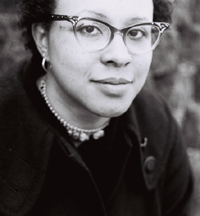
Jemiah Jefferson was born in Denver, Colorado. Now living in southeast Portland, Oregon, she works in the editorial department at Dark Horse Comics, Inc. and is a regular contributor to Popshifter.com.
Jefferson started writing fiction at the age of twelve, always with the goal of writing the material she wants to see but that doesn’t yet exist. According to her website, the first draft of the novel that would become Voice of the Bloodwas written in 24 hours in 1990 in a fit of inspiration.
After another six years (and several more novels and short stories) she took her experiences of living in San Francisco and of her contacts with the young, amoral, and beautiful that she had there and applied them to situations and characters already in existence in her imagination, fueling the creation of an extended vampire “family.” This led her to four novels–Voice (originally titled Vox Sanguinus
View original post 105 more words


Day 3: Ann Petry
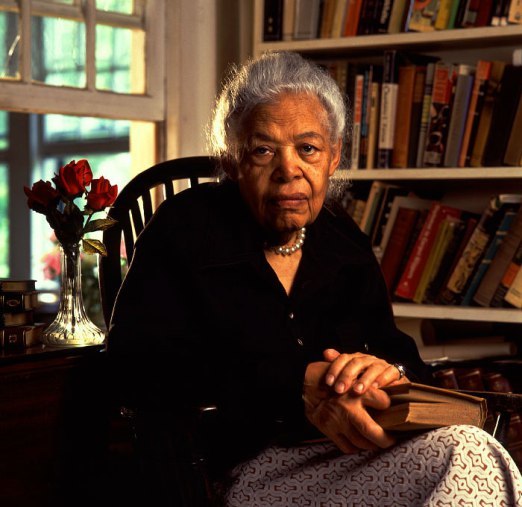
Ann Lane Petry’s birth date is not certain. Some biographers state October 12, 1911, while others list it as October 12, 1908. Either way, she was born in Old Saybrook, Connecticut, a predominantly white, rural community. Her family often told stories while she was growing up, and Petry began writing short stories and plays while she was still in high school.
The Street is her most famous novel, published in 1946; it made her the first black woman writer with book sales over a million copies.
As Petry is considered one of the most successful members of the “Richard Wright school” of writing, some overlook the Gothic–the dark and macabre–tones in her writing. In Keith Clark‘s book, The Radical Fiction of Ann Petry (Louisiana State University Press, 2013), Clark compares Petry’s work to Poe’s, saying she has brought the symbolism of classic Gothic into the 1940s. The tenement building becomes a…
View original post 157 more words


Day 4: Linda D. Addison
I love this book. I also couldn’t have survived the Horror Writer’s Association Scholarship from Hell without Linda and her crew, she’s awesome.
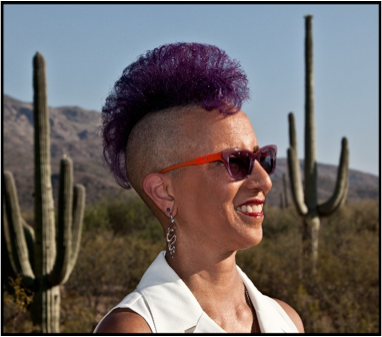
LindaD. Addison is a poet and writer of horror, science fiction, and fantasy currently living in Arizona. In 2001, she became the first African-American to win the HWA Bram Stoker award® for superior achievement in poetry for Consumed, Reduced to Beautiful Grey Ashes. She has since won the award three additional times, including one for her poetry and short story collection How to Recognize a Demon Has Become Your Friend (2011).
Addison has also published over 300 poems, stories, and articles for such publications as Essence Magazine and Asimov’s Science Fiction. Ms. Addison is a founding member of the writer’s group, Circles in the Hair (1990) and is the poetry editor for Space & Time Magazine.
She is also one of the editors for Sycorax’s Daughters, an anthology of horror fiction and poetry written by black women.
In her collection How to Recognize a Demon Has…
View original post 86 more words


Day 1: Helen Oyeyemi
From Eden Royce’s Dark Geisha, in honor of Black History Month and Women In Horror Month.
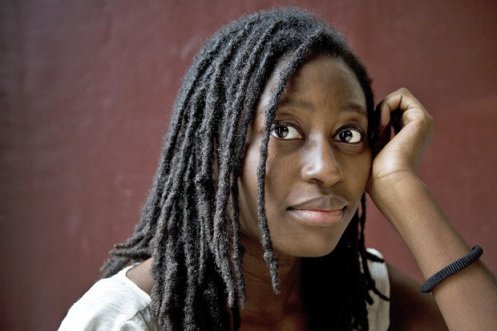
Helen Oyeyemi was born in Nigeria in 1984, moved to London with her family at age four. She wrote her first novel while at school studying for her A-levels. For those of us from the US, that’s sort of like study for the SAT in order to be considered for entrance into a college or university. Also while still at school, she got a publishing deal and The Icarus Girl, a ghost story about an eight-year-old girl torn between her British and Nigerian identity, hit the shelves.
Her third novel, White is for Witching–described as having “roots in Henry James and Edgar Allan Poe”–was a Shirley Jackson Award Finalist and won a Somerset Maugham Award. Set in Dover off the South East coast of England, the Silver family house has been home to four generations of women, weaving threads that bind them cross time, space, and death. I loved the points of…
View original post 150 more words


February 3, 2017
Black Women in Horror Writing
“60 Black Women in Horror Fiction” is available as a free eBook on Goodreads:
60 Black Women in Horror on Goodreads
[image error]February is African American History Month here in the United States. It is also Women in Horror Month (WiHM). In 2013, as an Ambassador for Women in Horror Month. This list of black women who write horror was compiled at the intersection of the two. The booklet also includes interviews with nine of the women. The eBook version includes a bonus: an essay, and four short stories not found in the paperback.
The electronic (eBook) edition contains the following bonus materials: four short stories, and an essay, not found in the paperback.
A shorter book that only includes the list and interviews is available as a paperback for $5.50:
https://www.createspace.com/4695298
The Interviews
The Lists (with Bios)
Twenty Women in Black Horror Writing (List One)
Twenty One More Women in Black Horror Writing (List Two)
19 More Black Women in Horror Fiction (List Three)
The Full List (Alphabetical)
Listing with webpage links
5. L.A. Banks
7. Chesya Burke
11. Pearl Cleage
12. Crystal Connor
13. Arielle Crowell
14. Joy M. Copeland
15. L.M. Davis
16. Lexi Davis
17. Tananarive Due
18. Janiera Eldridge
19. Ann Fields
20. Robin Green
21. Dicey Grenor
22. Jewelle Gomez
24. Donna Hill
25. Allison Hobbs
27. Akua Lezli Hope
28. Nalo Hopkinson
30. Monica Jackson
31. Tish Jackson
33. Jemiah Jefferson
34. N.K. Jemisin
36. Tenea Johnson
37. A.D. Koboah
38. Faye McCray
39. Melinda Michelle
40. Donna Monday
41. Toni Morrison
42. Pam Noles
43. Nnedi Okorafor
44. Helen Oyeyemi
45. Ama Patterson
46. A.L. Peck
47. Dia Reeves
48. Evie Rhodes
49. Jill Robinson
50. Leone Ross
51. Eden Royce
53. Anna Sanders
54. Sumiko Saulson
55. Nisi Shawl
57. Sheree R. Thomas
58. L. Marie Wood
59. Zane




